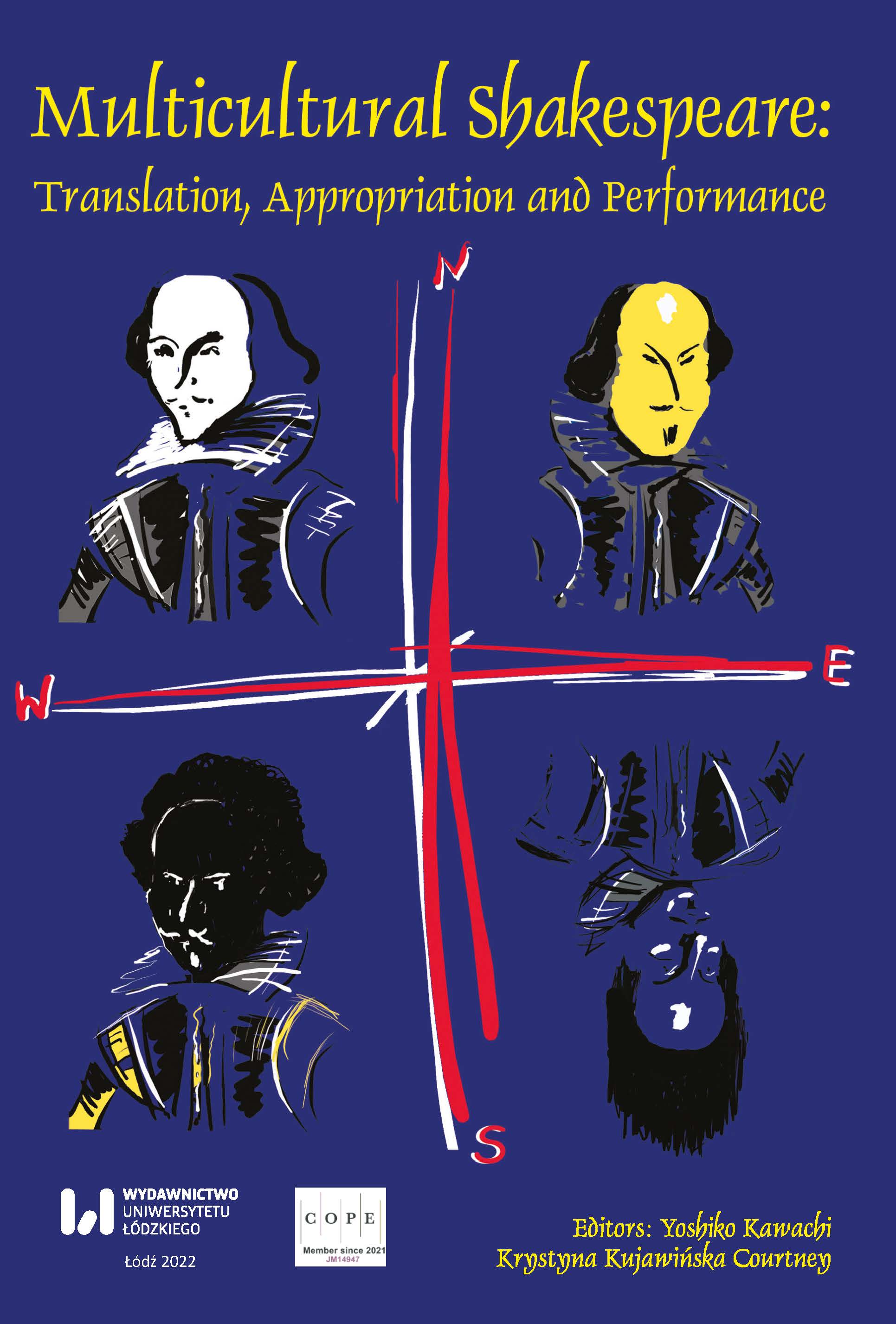Introduction: “With Such Perfection: ” Imagining Utopia through Shakespeare
DOI:
https://doi.org/10.18778/2083-8530.26.01Downloads
References
Appelbaum, Robert. Literature and Utopian Politics in Seventeenth-century England. Cambridge: Cambridge University Press, 2002.
Google Scholar
DOI: https://doi.org/10.1017/CBO9780511483431
Boesky, Amy. Founding Fictions: Utopias in Early Modern England. Athens, GA: University of Georgia Press, 1996.
Google Scholar
Brevik, Frank. The Tempest and New World-Utopian Politics. New York: Palgrave, 2012.
Google Scholar
DOI: https://doi.org/10.1057/9781137021809
Bulger, Thomas. “The Utopic Structure of The Tempest.” Utopian Studies 5.1 (1994): 38-47.
Google Scholar
Campbell, Mary Baine. Wonder & Science: Imagining Worlds in Early Modern Europe. Ithaca, NY: Cornell University Press, 1999.
Google Scholar
Claeys, Gregory. “The Origins of Dystopia: Wells, Huxley and Orwell.” The Cambridge Companion to Utopian Literature. Ed. Gregory Claeys. Cambridge: Cambridge University Press, 2010. 107-131.
Google Scholar
DOI: https://doi.org/10.1017/CCOL9780521886659.005
Dolan, Jill. Utopia in Performance: Finding Hope at the Theater. University of Michigan Press, 2010.
Google Scholar
Eagleton, Terry. Shakespeare and Society. New York: Shocken Books, 1967.
Google Scholar
Eagleton, Terry. “Utopia and Its Opposites.” Socialist Register (2000): 31-40.
Google Scholar
Even-Zohar, Itamar. “Polysystem Theory.” Poetics Today 1.1/2 (1979): 287-310.
Google Scholar
DOI: https://doi.org/10.2307/1772051
Gottlieb, Erika. Dystopian Fiction East and West: Universe of Terror and Trial. Quebec City: McGill-Queen’s University Press, 2001.
Google Scholar
DOI: https://doi.org/10.1515/9780773569188
Huebert, Ronald. Privacy in the Age of Shakespeare: Evolving Relationships in a Changing Environment. Toronto: University of Toronto Press, 2016.
Google Scholar
DOI: https://doi.org/10.3138/9781442669529
Irish, Tracy. Teaching Shakespeare: A History of the Teaching of Shakespeare in England. Royal Shakespeare Company, 2008.
Google Scholar
Jakobson, Roman. “On Linguistic Aspects of Translation.” On Translation. Ed. Reuben Arthur Brower. Harward: Harward University Press, 1959. 30-39.
Google Scholar
Jameson, Fredric. Archaeologies of the Future: The Desire Called Utopia and Other Science Fictions. New York: Verso, 2005.
Google Scholar
Kendrick, Christopher. Utopia, Carnival, and Commonwealth in Renaissance England. Toronto, CN; Buffalo, NY: University of Toronto Press, 2004.
Google Scholar
DOI: https://doi.org/10.3138/9781442682993
Knapp, Jeffrey. An Empire Nowhere: England, America, and Literature from Utopia to The Tempest. Berkeley, CA: University of California Press, 1992.
Google Scholar
DOI: https://doi.org/10.1525/9780520310971
Leslie, Marina. Renaissance Utopias and the Problem of History. Ithaca, NY: Cornell University Press, 1998.
Google Scholar
Murray, Jessica. Jessica Murray in conversation with Nataliya Torkut. “Shakespeare Can Help Us Survive War’: Ukrainian Academic Toasts Bard in UK Visit.” 22 April 2023. The Guardian. https://www.theguardian.com/world/2023/apr/22/shakespeare-can-help-us-survive-war-ukrainian-academic-toasts-bard-in-uk-visit/ Accessed 22 April 2023.
Google Scholar
Panjwani, Varsha, et al., eds. Recontextualizing Indian Shakespeare Cinema in the West: Familiar Strangers. Bloomsbury Publishing, 2023.
Google Scholar
Plato. Republic. Trans. G.M.A. Grube and C.D.C. Reeve. Indianapolis: Hackett Publishing, 1992.
Google Scholar
Sanders, Julie. “Shakespearean Adaptation, British Colonial and Contemporary India and the Question of Kashmir.” The Routledge Companion to Global Literary Adaptation in the Twenty-First Century. Ed. Brandon Chua and Elizabeth Ho. Kindle ed. New York and London: Routledge, 2023.
Google Scholar
Sargent, Lyman Tower. “The Three Faces of Utopianism Revisited.” Utopian Studies: Journal of the Society for Utopian Studies 5 (1994): 1-37.
Google Scholar
Vaughan, Alden T., and Virginia Mason Vaughan. Shakespeare’s Caliban: A Cultural History. Cambridge: Cambridge University Press, 1991.
Google Scholar
Vieira, Fátima. “The Concept of Utopia.” The Cambridge Companion to Utopian Literature. Ed. Gregory Claeys. Cambridge: Cambridge University Press, 2010. 3-27.
Google Scholar
DOI: https://doi.org/10.1017/CCOL9780521886659.001
Downloads
Published
Versions
- 2023-12-20 (2)
- 2022-12-30 (1)
How to Cite
Issue
Section
License

This work is licensed under a Creative Commons Attribution-NonCommercial-NoDerivatives 4.0 International License.












